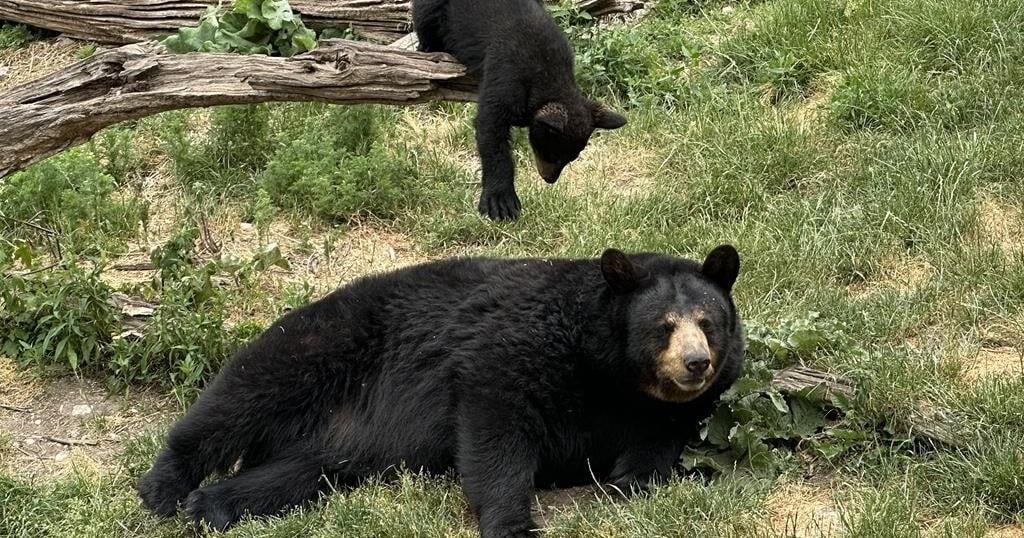TORONTO – Marineland has been ordered to pay nearly $85,000 in fines and restitution after it was found guilty under Ontario’s animal cruelty laws of three charges related to its care of three black bears.
The amount, which was jointly proposed by lawyers for the Crown and Marineland, includes a $15,000 fine for each of the bears, a 25-per-cent victim surcharge and $28,000 in restitution for the care of the bears after they were seized by animal welfare officers.
The Niagara, Ont., tourist attraction was found guilty in March in what’s believed to be its first conviction under animal-cruelty laws.
An agreed statement of facts read in court earlier this year said the bears – Slash, Toad and Lizzy – lived in small enclosures with inadequate access to water for months.
It said the enclosures measured 48 square feet, with the two females, Toad and Lizzy, sharing one.
The statement said animal welfare inspectors visited Marineland in early June 2021 and soon issued orders to the park, including that the bears have enclosures of at least 5,000 square feet if alone and access to water sources.
Not enough progress had been made on the enclosures months later, court heard Thursday in an updated statement, and Animal Welfare Services eventually removed all three bears from the park’s care.
A lawyer representing Marineland told the court Thursday the orders were issued during the COVID-19 pandemic and it was difficult to find staff to do the carpentry work required to improve the enclosures, but that efforts were underway at the time the bears were removed.
Michelle Psutka added the sentence represents a “significant” fine.
“This is a first-time offence for Marineland, and again we are dealing with a fail-to-comply case, not a case of a finding of animal cruelty,” she said in her submissions.
Marineland has until late September to pay the restitution fee, which the Crown said is based on costs of $145 a day to care for two of the bears over roughly six months before they were brought to a permanent enclosure at a wildlife facility.
The justice of the peace overseeing the case said she was satisfied the jointly proposed sentence addressed the need for deterrence as well as any aggravating and mitigating factors.
Animal Justice, an animal law advocacy organization, expressed disappointment that prosecutors didn’t seek an order prohibiting Marineland from having other animals, and that no ongoing remedial measures were imposed.
However, the organization — which unsuccessfully sought to participate in the sentencing as an intervener — hailed the ruling as historic as it marks the first time the roadside zoo and aquarium has faced legal consequences for animal welfare offences.
“Today marks a watershed moment in the fight to protect vulnerable animals from being abused for entertainment,” Camille Labchuk, the organization’s executive direction, said in a statement.
The province has been investigating the park for four years.
One killer whale, 14 beluga whales and one dolphin have died at the park since 2019. Currently, 15 bears remain at Marineland.
This report by The Canadian Press was first published Aug. 15, 2024.
